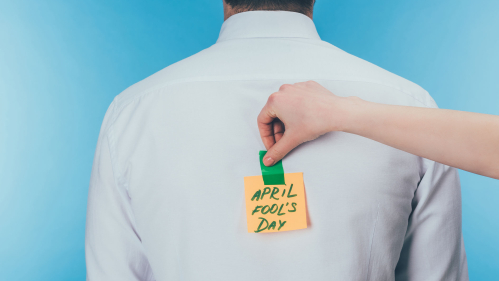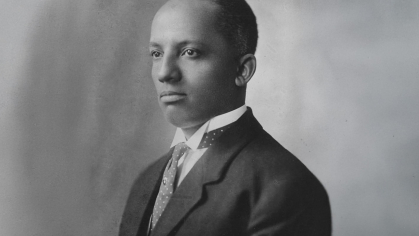Today is April Fools' Day, a day to be extra skeptical if you come across something out of the ordinary or that seems hard to believe. But how did this day of pranks and practical jokes get started? Angus Kress Gillespie, a folklorist and professor of American studies in the School of Arts Sciences, shares the explanation believed by most historians. And he promises this is no joke.
What are the origins of April Fools' Day?
The story goes back to the 1500s in France when the Julian calendar (established by Julius Caesar) was replaced with the Gregorian calendar (introduced by Pope Gregory XIII and still used in most parts of the world). In the old Julian calendar, the new year began on April 1, but with the new Gregorian calendar, the new year was set to begin on January 1.
News did not always travel fast in those days so not everyone got the word that the start of the New Year changed to January 1. They kept celebrating it on April 1, and they were widely mocked as April Fools.
How did this turn into a day of practical jokes?
The practice of telling April Fools' jokes spread rapidly, and it has continued over the last 500 years or so. These jokes work best on people who have not been paying attention to the calendar. Playing a joke on someone, you want to get to them early in the morning before they realize what day it is.
What are some of the best April Fools' jokes over the years?
The most effective April Fools' jokes have come from some kind of authoritative source, such as a respected news channel or a local government. The joke must be false but believable and – most importantly – it must be harmless or inconsequential.
Here are my three favorites: The first story deals with Big Ben, the Great Clock of Westminster in London, England. It was on April Fools' Day back in 1980 that the BBC announced a big change. Big Ben’s clock face was being changed to digital, and the first person to get back to the network could win the clock hands.
My second story deals with former President Richard Nixon, who resigned from office back in 1974. Yet in 1992, National Public Radio ran a spot with Nixon saying that he was running for president again. It was very convincing, but it was not Nixon, only an actor. It was a very effective prank.
More recently, there was an April Fools' Day announcement by the Boston Public Garden with a warning for people not to use their cell phones to take photos of the well-known sculptures in the garden because the light emitted would damage and erode the sculptures. It was just right – very strange but kind of believable.
Do you have any tips for jokesters this year?
For the joke to work, it must take place very early in the day to catch people who aren't thinking of the calendar. It should also be low-key and inconsequential. For example, it's not a good idea to say something like, "I just learned that I lost my job" or "I just learned that I am pregnant" if it's not really true. Low-key statements should be playful so the fooler and the fooled can move on.



